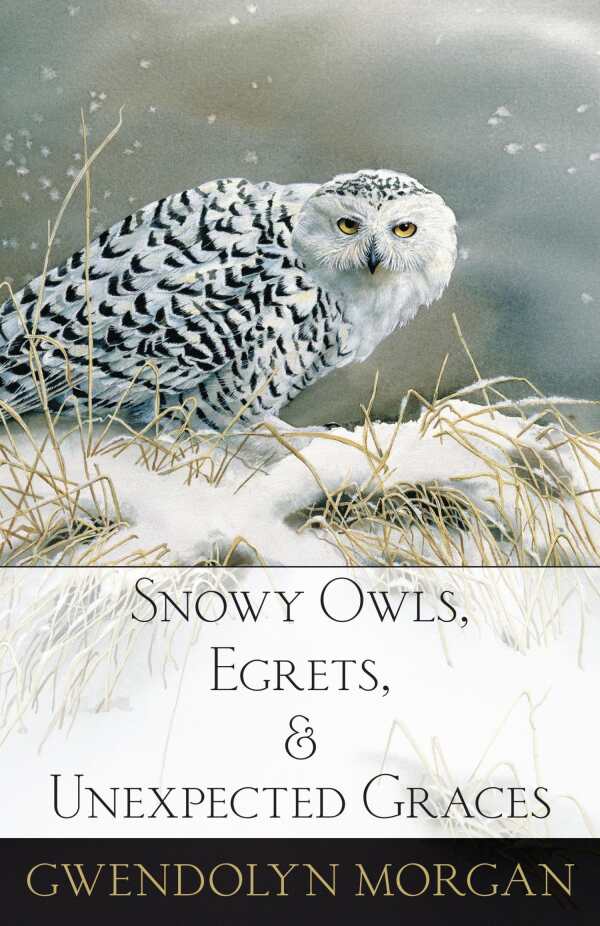Snowy Owls, Egrets & Unexpected Graces
- 2016 INDIES Finalist
- Finalist, Nature (Adult Nonfiction)
This healing collection, filled with poems steeped in ecology, lands on timeless themes of gratitude.
Gwendolyn Morgan’s Snowy Owls, Egrets, and Unexpected Graces is a poetry of wild spaces. Atmospheric portraits of finding solace in daily rituals and exhortations to look toward the earth’s abiding magic provide a sage response to the dark, unanswerable ills of the modern world.
From Syria to Ferguson and from toxins to cancer, these poems weigh “a time of crisis” against daily beauty. Despite the struggles depicted—both private and collective—a spiritual undercurrent informs the work, as does a strong belief in the power of talismanic images. Runes, artistic creation, ornithology, and botanical abundance stitch the eight sections together.
Prose poems and brief lyrics tell a story of cancer treatment and remission, depict kinship among a community of close-knit women, blend disturbing incidents with fragments of wonderment, and experiment with tone through lines that resemble notebook jottings and alternate with more musical cadences. A consistent speaker delights in the specificity of bird names, using repetition to build poetics steeped in ecology. The collection ultimately builds toward a sense of peace, if not complete reconciliation, with a world that repeatedly reminds the speaker of the cost of human failure.
A few poems distill violence into personal stories. “Butternut Squash Soup,” one of the book’s standouts, recalls a woman’s assault while threading narrative with color and surprising associations. “Sturgeon, Osprey, Gemini New Moon” pairs local tragedy with a cancer survivor’s recollection of a particular moment. In other pieces, references to current events—including war, a mass shooting in Orlando, and famine—are made, but left as observations that don’t always expand beyond their devastating implications. The book, however, acknowledges its own tendencies.
In one poem, a speaker muses, “Gathering: how she turns a word” and considers the need to keep “collecting phrases.” Such moments offer insight on the scaffolding behind the poems. They suggest that the act of amassing information is a way of creating order in a chaotic world. Here, bearing witness often means quiet acknowledgment, a potent stance in itself.
On occasion, language rests in the ethereal. Phrases such as “atmospheric phenomena of cloud rainbows” and “seed syllables of the luminous auric field” contrast sharply with pieces that gather pointed images. A tendency to begin with similar movements and conclude with lists of images, quotations, or statements that sum up the poem’s message also cloud the otherwise thoughtful work.
Brave in revealing its seams and extravagant in its passion for landscape, this is a healing book that circles through seasons and lands on timeless themes of gratitude.
Reviewed by
Karen Rigby
Disclosure: This article is not an endorsement, but a review. The publisher of this book provided free copies of the book and paid a small fee to have their book reviewed by a professional reviewer. Foreword Reviews and Clarion Reviews make no guarantee that the publisher will receive a positive review. Foreword Magazine, Inc. is disclosing this in accordance with the Federal Trade Commission’s 16 CFR, Part 255.

